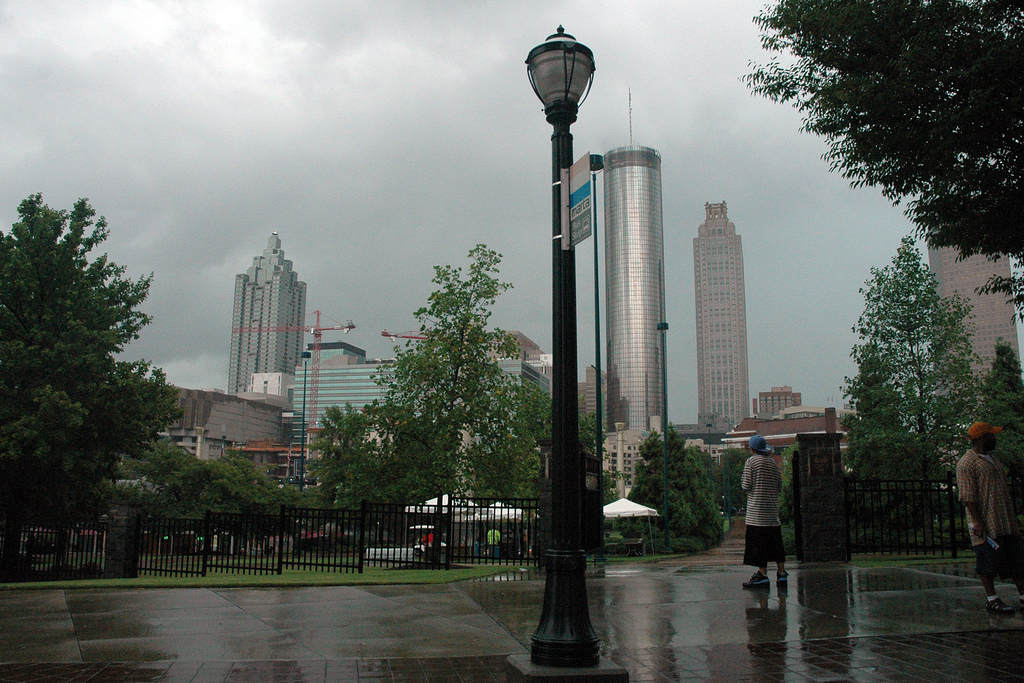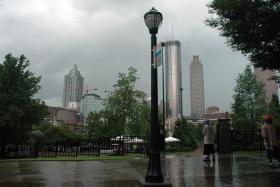Clean Air Act of 1970 Increases Rainfall in Atlanta

goingstuckey via Flickr / http://www.flickr.com/photos/34739862@N00/4912126105

A report by a Georgia State University researcher found the Clean Air Act of 1970 actually caused more rainfall in metro Atlanta by decreasing pollution.A broadcast version of this story
Jeremy Diem, an associate professor of geography at Georgia State, collected data from nine weather stations around Atlanta dating back to 1948.
He found that in the 1950s and 1960s, heavy summer rainfall decreased in urban Atlanta compared to rural parts of Atlanta.
“The reason behind this is that the increased air pollution was suppressing rainfall, so it was making the clouds less productive,” Diem said.
But starting in the late 1970s, he discovered a different trend – more heavy rains. In 1970, the U.S. passed the Clean Air Act, a major environmental law that enforced regulations on pollution.
Between 1970 and 1975, emissions decreased by approximately 40 percent nationwide.
The decrease in pollution caused a major rebound in summer rainfalls, Diem said.
But the trend is not unique in Atlanta, and it’s likely that other cities in the U.S. and around the world are experiencing decreased rainfalls because of pollution, he said.
“It might be suppressing rainfall in urban areas that currently have high pollution levels, such as developing countries and China,” Diem said.
9(MDAxODM0MDY4MDEyMTY4NDA3MzI3YjkzMw004))








